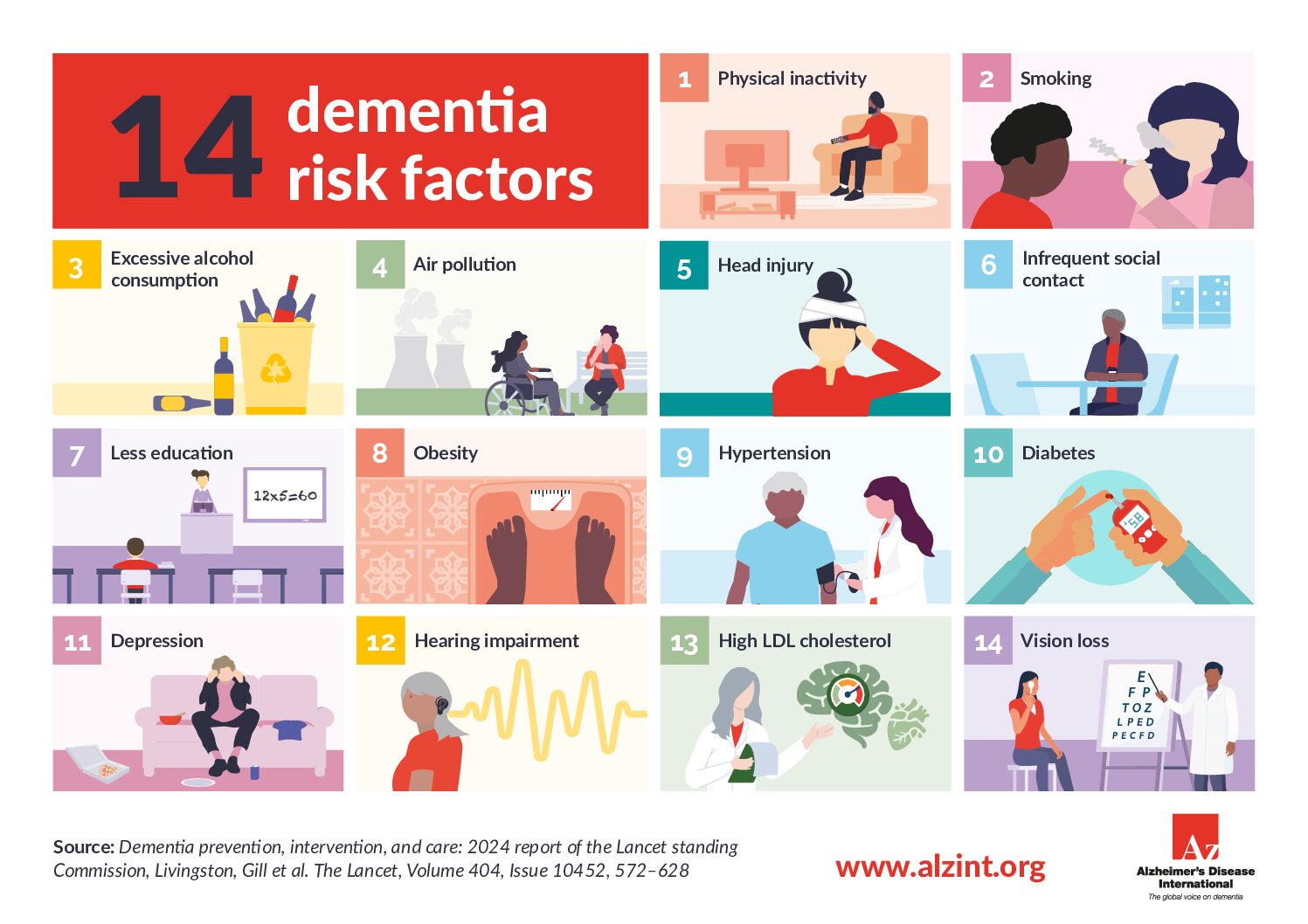Alzheimer’s disease affects the brain’s neurons that carry messages to other parts of the body. It’s characterized by the accumulation of the protein fragment beta-amyloid (amyloid plaques) outside neurons and the accumulation of an abnormal form of the protein tau (neurofibrillary tangles) inside neurons. The plaques and tangles lead to a vicious cycle of inflammation and atrophy of the brain. Initially, the brain can compensate, and the disease process can persist for 20 years before clear cognitive and behavioral changes indicate a problem. Memory loss, impaired judgment, confusion, depression, personality changes, and loss of interest may then occur.
For general information, research trials, and prevention information regarding Alzheimer’s disease, see:






